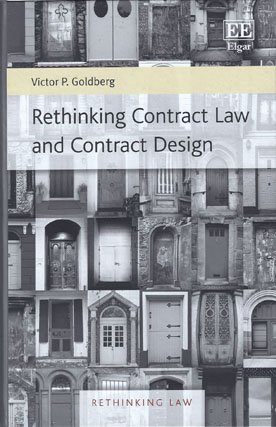We will be closed from 5pm Thursday 17th April for the Easter Bank Holidays, re-opening at 8.30am on Tuesday 22nd April. Any orders placed during this period will be processed when we re-open.

Contract law allows parties to set their own rules within constraints. It provides a set of default rules and if the parties do not like them, they can change them. Rethinking Contract Law and Contract Design explores various long-standing contract doctrines, casting them in a new and compelling light by focusing on the economics of contractual relations.
Building upon and extending the arguments set forth in his acclaimed book Framing Contract Law, Goldberg revisits many of the seminal contract cases and places those decisions under close scrutiny, challenging readers, by means of forensic exploration of records, briefs, and other materials, to reconsider their conclusions.
Split into four parts, the author examines direct damages, consequential damages, the excuses doctrines (including impossibility, impracticability and frustration), and offer and acceptance.Asking the questions that often go unasked, and challenging the assumptions silently accepted by the majority, one of Goldberg's many insightful observations, and an underlying thread to the book, is that achieving an economic understanding of contract design will illuminate both contract doctrine and contract interpretation.
Written with clarity and poise, Rethinking Contract Law and Contract Design is set to ignite plenty of debate amongst contract scholars and contract drafters, and provides the anvil upon which future generations of contract thinking can be forged. Contract scholars and students interested in exploring new perspectives on the topic will find this to be an essential read, as will contract lawyers and judges.